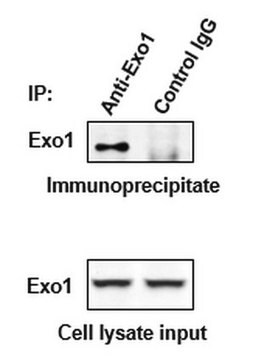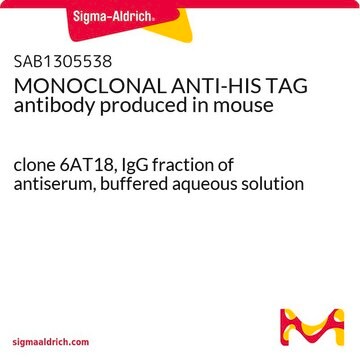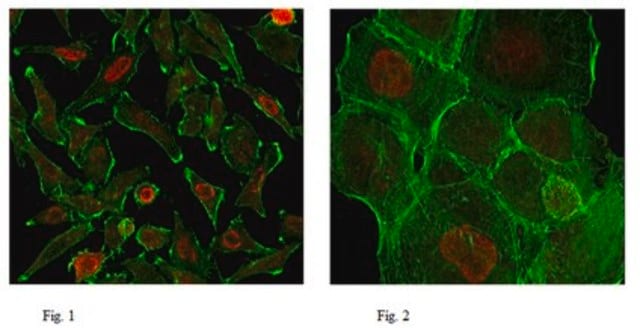ABE1408
Anti-DNA polymerase beta Antibody
from rabbit, purified by affinity chromatography
Sinónimos:
DNA polymerase beta, DNA polymerase beta
About This Item
Productos recomendados
biological source
rabbit
Quality Level
antibody form
affinity isolated antibody
antibody product type
primary antibodies
clone
polyclonal
purified by
affinity chromatography
species reactivity
rat, human, mouse
species reactivity (predicted by homology)
canine (based on 100% sequence homology), Xenopus (based on 100% sequence homology), bovine (based on 100% sequence homology), feline (based on 100% sequence homology), rhesus macaque (based on 100% sequence homology)
technique(s)
immunohistochemistry: suitable
western blot: suitable
NCBI accession no.
UniProt accession no.
shipped in
wet ice
target post-translational modification
unmodified
Gene Information
bovine ... Polb(614688)
cat ... Polb(101099797)
dog ... Polb(494001)
frog ... Polb(448741)
human ... POLB(5423)
mouse ... Polb(18970)
rat ... Polb(29240)
rhesus monkey ... Polb(704801)
General description
Immunogen
Application
Quality
Western Blotting Analysis: 1.0 µg/mL of this antibody detected DNA polymerase beta in 10 µg of human and mouse testis tissue, Jurkat, and HeLa lysates.
Target description
Other Notes
¿No encuentra el producto adecuado?
Pruebe nuestro Herramienta de selección de productos.
Optional
Storage Class
12 - Non Combustible Liquids
wgk_germany
WGK 1
flash_point_f
Not applicable
flash_point_c
Not applicable
Certificados de análisis (COA)
Busque Certificados de análisis (COA) introduciendo el número de lote del producto. Los números de lote se encuentran en la etiqueta del producto después de las palabras «Lot» o «Batch»
¿Ya tiene este producto?
Encuentre la documentación para los productos que ha comprado recientemente en la Biblioteca de documentos.
Nuestro equipo de científicos tiene experiencia en todas las áreas de investigación: Ciencias de la vida, Ciencia de los materiales, Síntesis química, Cromatografía, Analítica y muchas otras.
Póngase en contacto con el Servicio técnico







